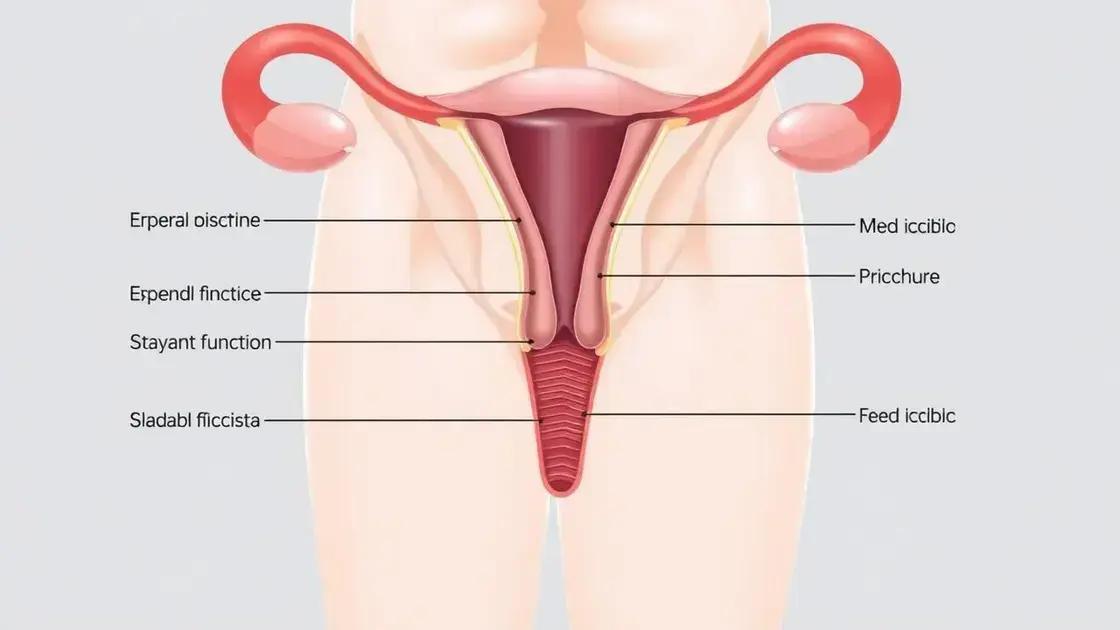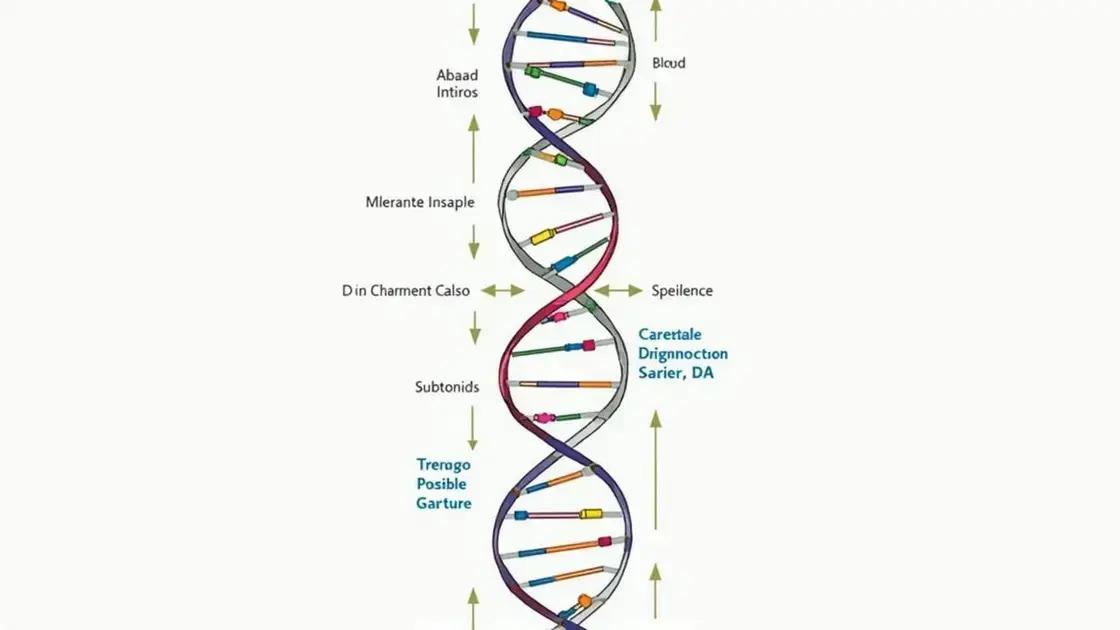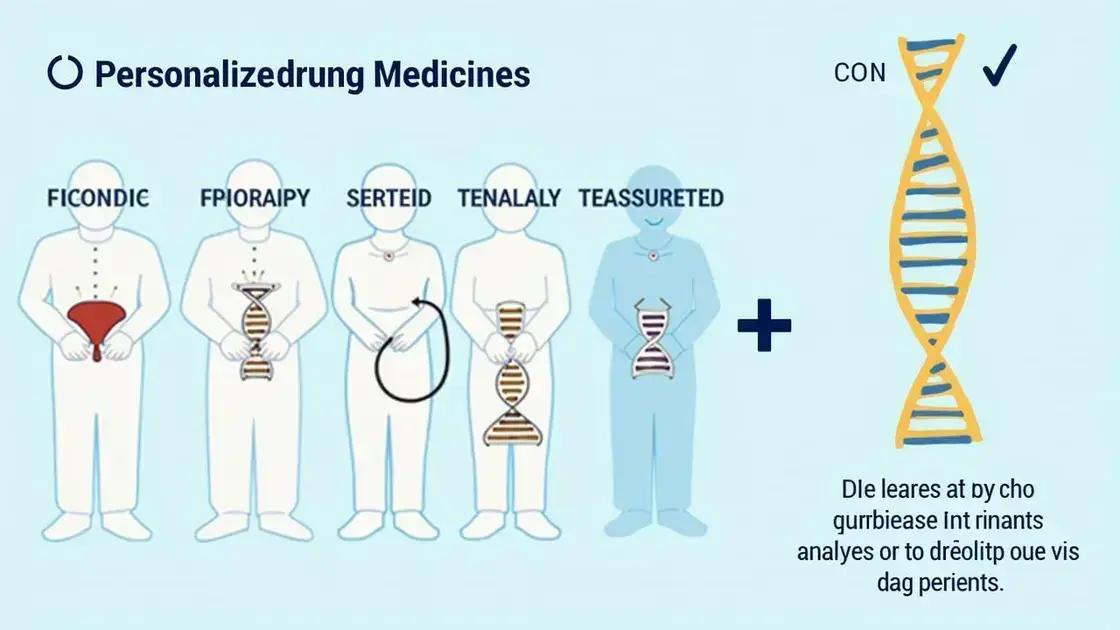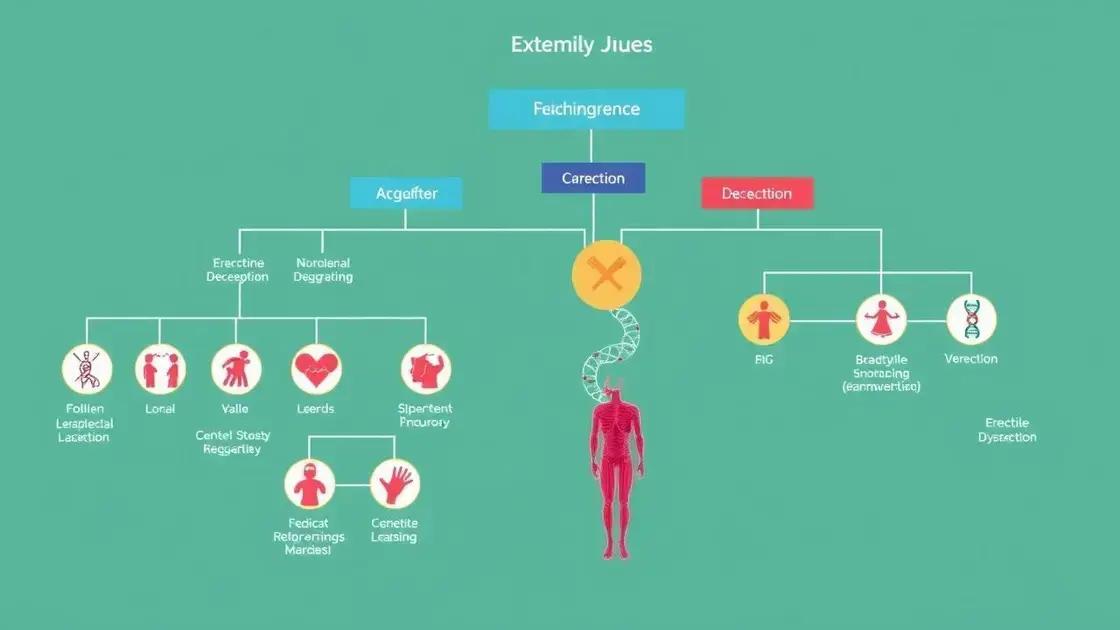The role of genetics in erectile dysfunction susceptibility is significant, as genetic factors can influence an individual’s risk of developing ED and the effectiveness of various treatment options. Understanding family history, specific genetic markers, and the importance of personalized medicine can empower individuals to address their sexual health proactively.
Erectile dysfunction (ED) affects millions of men worldwide, but did you know that genetics plays a vital role in this condition? Recent studies reveal that genetic predisposition can significantly influence erectile dysfunction susceptibility. In this article, we will delve into how genetic factors contribute to ED, the importance of understanding family history, and potential treatment options based on genetic insights.
Understanding Erectile Dysfunction

Erectile dysfunction (ED) is a condition that affects a man’s ability to achieve or maintain an erection suitable for sexual activity. This issue is more common than you might think, as it can affect men of all ages. However, it becomes increasingly prevalent as men age. Understanding ED is crucial for men experiencing this condition and for their partners.
Types of Erectile Dysfunction
There are mainly two types of erectile dysfunction: primary and secondary. Primary erectile dysfunction is a rare condition in which a man has never been able to achieve an erection. In contrast, secondary erectile dysfunction occurs when a man who has previously been able to have erections suddenly faces difficulties. This type is more common and can be triggered by various factors.
Symptoms of Erectile Dysfunction
The primary symptom of ED is the inability to get or keep an erection. Other symptoms may include reduced sexual desire and difficulty with ejaculation. Recognizing these symptoms early and discussing them with a healthcare provider can help in addressing the underlying causes.
Causes of Erectile Dysfunction
Several factors contribute to erectile dysfunction, including psychological and physical issues. Psychological factors can include stress, anxiety, and depression, while physical causes may involve heart disease, diabetes, obesity, and hormonal imbalances.
Treatment Options
Treatment for ED depends on the underlying cause. Options may include lifestyle changes, medications, therapy, and in some cases, surgical interventions. Consulting with a healthcare professional is essential for determining the best approach tailored to the individual.
By understanding erectile dysfunction, individuals can address the issue more effectively and improve their sexual health and overall quality of life.
Genetic Factors in Erectile Dysfunction

Genetic factors play a significant role in erectile dysfunction (ED). Researchers have found that certain genes may increase an individual’s risk for developing this condition. These genes can influence various biological processes, including hormone production, blood flow, and nerve function, all of which are essential for achieving and maintaining an erection.
Hereditary Traits
Many studies indicate that there may be a hereditary component to erectile dysfunction. If a man has a family history of ED, he may be more likely to experience this issue himself. Genetic predispositions can impact the body’s overall health and vascular function, contributing to erectile difficulties.
Specific Genetic Variants
Recent research has identified specific genetic variants associated with erectile dysfunction. For example, variations in genes linked to endothelial function, which is crucial for blood circulation, may affect erectile performance. Understanding these genetic markers can help in early detection and treatment of ED.
Role of Hormones
Hormonal imbalances can also be influenced by genetics. Genes that regulate the production of testosterone and other hormones can affect libido and erectile function. Men with genetic disorders that impact hormone levels may face increased risks for developing erectile dysfunction.
The Link with Other Health Conditions
Genetics can also link erectile dysfunction with other health conditions, such as diabetes and heart disease. These comorbidities are often influenced by genetic factors, making ED a potential early warning sign for other serious health issues.
By understanding the genetic factors involved in erectile dysfunction, individuals can gain insights into their own health risks and the importance of discussing these factors with their healthcare providers.
How Genetics Impacts Treatment Options

Genetics plays a crucial role in determining the most effective treatment options for erectile dysfunction (ED). Understanding genetic factors can help healthcare providers tailor therapies to individual patients, improving outcomes.
Personalized Medicine
Personalized medicine is an approach that considers an individual’s genetic makeup when determining treatment. This method allows doctors to select medications and therapies likely to be more effective based on a patient’s genetic profile, rather than using a one-size-fits-all treatment.
Response to Medications
Some men may respond differently to ED medications due to their genetic variations. For example, genetic differences can affect how a person metabolizes drugs. Understanding these differences can lead to better medication choices and dosages, minimizing side effects and enhancing effectiveness.
Risk Assessment
Genetic testing can help identify individuals at a higher risk of developing certain health issues that coincide with ED, such as cardiovascular diseases. By recognizing these risks, doctors can recommend preventive measures or specific treatments that address both conditions simultaneously.
Guiding Lifestyle Changes
Genetics can also influence how effectively a person responds to lifestyle changes, such as diet or exercise. Knowing a patient’s genetic background can help healthcare providers suggest tailored lifestyle modifications that improve not only erectile function but also overall health.
As research advances, understanding genetics will continue to enhance treatment options for erectile dysfunction, leading to better health and quality of life for men facing this challenge.
The Importance of Family History

The importance of family history cannot be overstated when discussing erectile dysfunction (ED). A man’s family medical history can provide valuable insights into his own risk for developing this condition.
Genetic Predispositions
Many health conditions, including erectile dysfunction, can be influenced by genetics. If close family members, such as fathers or brothers, have experienced ED, it may indicate a genetic predisposition. Understanding these patterns can help individuals gauge their risks.
Connection to Other Health Issues
Family history often reveals a connection to other health issues, such as heart disease, diabetes, or hormonal disorders, which are known risk factors for ED. Identifying these patterns can empower individuals to seek preventive care and make informed lifestyle choices.
Role in Diagnosis and Treatment
When discussing ED with healthcare professionals, sharing family history can aid in a more accurate diagnosis. Medical providers can consider inherited traits and conditions when outlining potential treatment options tailored to the patient’s needs.
Encouraging Open Communication
Understanding the role of family history encourages open communication about sexual health among family members. This can lead to greater awareness and serve as motivation for individuals to address their health proactively.
Recognizing the importance of family history allows men to take steps toward maintaining their health and mitigating risks related to erectile dysfunction.
Future Research on Genetics and Erectile Dysfunction

Future research on genetics and erectile dysfunction (ED) aims to uncover more about the complex relationship between our genes and this condition. Scientists believe that understanding these genetic links may lead to better prevention and treatment strategies.
Exploring Genetic Markers
One area of focus will be identifying specific genetic markers associated with ED. These markers may help predict an individual’s risk for developing the condition. By mapping these genes, researchers hope to develop targeted therapies to address erectile dysfunction more effectively.
Understanding Gene-Environment Interactions
Future studies will also investigate how genetic factors interact with environmental influences. For example, lifestyle choices such as diet and exercise may affect individuals differently based on their genetic makeup. Understanding these interactions can help create personalized lifestyle recommendations to improve sexual health.
Advancements in Genetic Testing
As genetic testing becomes more advanced and accessible, it will play a critical role in ED research. Determining an individual’s genetic predisposition to ED could allow for early intervention, which may prevent the onset of this condition.
New Therapies Based on Genetic Research
With ongoing discoveries in genetics, new treatment options may emerge. Research may lead to innovative therapies targeting genetic pathways that influence erectile function, offering alternatives to traditional medications.
By pursuing these research avenues, the understanding of genetics related to erectile dysfunction can potentially transform treatment and enhance the quality of life for many individuals.
Understanding the Role of Genetics in Erectile Dysfunction
Erectile dysfunction is a complex condition influenced by various factors, including genetics. As we have explored, genetic predispositions can significantly impact a man’s risk for developing ED, as well as the effectiveness of treatment options.
Recognizing the importance of family history and genetic testing can help individuals better understand their health and take proactive steps towards improving their sexual health. Future research will continue to enhance our knowledge of genetic factors in ED, paving the way for personalized treatment and prevention strategies.
By focusing on genetics, we can unlock new insights that may lead to more effective interventions, ultimately improving the quality of life for many individuals affected by erectile dysfunction.
FAQ – Frequently Asked Questions about Genetics and Erectile Dysfunction
What is erectile dysfunction?
Erectile dysfunction is the inability to get or maintain an erection suitable for sexual activity. It can affect men of all ages.
How does genetics influence erectile dysfunction?
Genetics can play a role in determining an individual’s risk for developing erectile dysfunction and can influence how effective certain treatments may be.
Why is family history important for erectile dysfunction?
Family history can indicate a genetic predisposition to erectile dysfunction, helping individuals assess their own risk and seek early intervention.
What are some treatment options for erectile dysfunction?
Treatment options include lifestyle changes, medications, therapy, and in some cases, surgical interventions tailored to the individual’s needs.
What is personalized medicine in the context of erectile dysfunction?
Personalized medicine considers an individual’s genetic background to determine the most effective treatments for erectile dysfunction, improving outcomes.
What role does ongoing research play in understanding erectile dysfunction?
Ongoing research aims to uncover genetic markers and improve treatment options, potentially leading to new, targeted therapies for erectile dysfunction.












